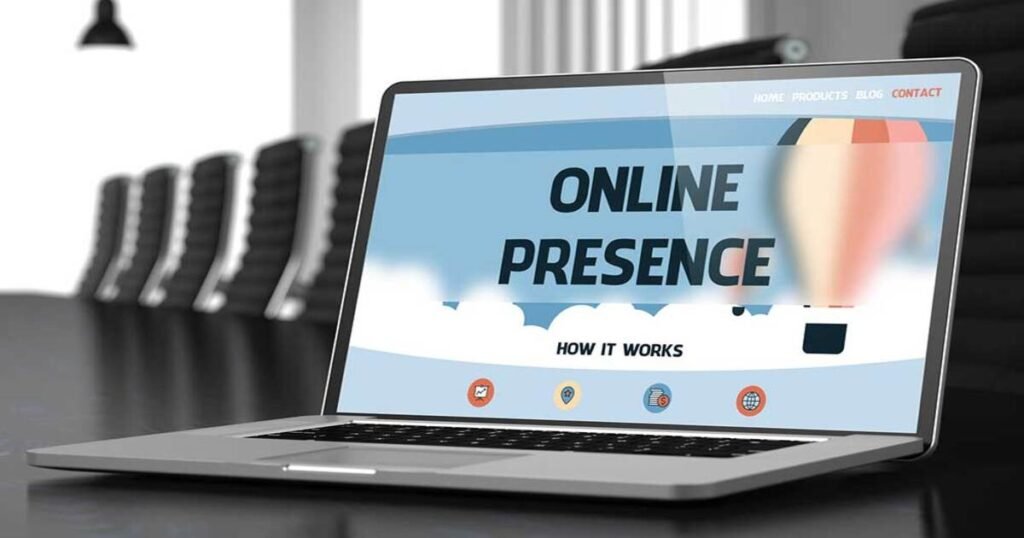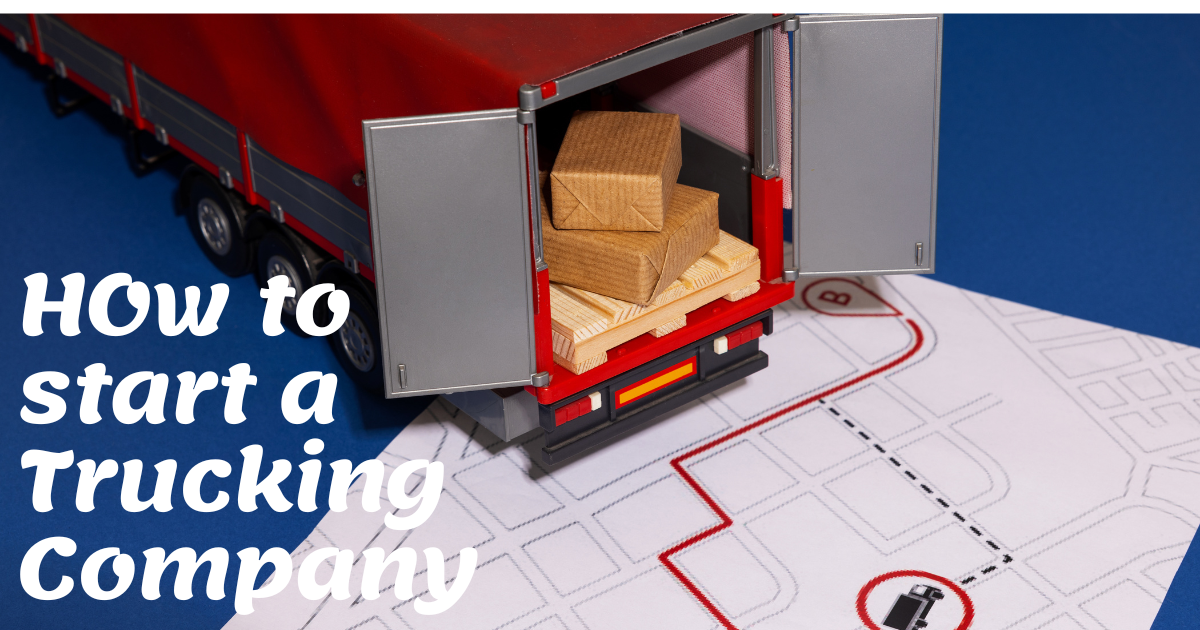How To Start a Rental Business In 2024 an Easy Guide

What are the Best Rental Business
Running a successful rental business can be highly lucrative offering a steady stream of income without the need for significant upfront investment in manufacturing or production. Here are some of the best rental business ideas.
Real Estate Rentals This includes residential properties commercial spaces vacation homes and even storage units. Real estate rentals can provide a consistent source of income especially if the properties are well-maintained and located in desirable areas.
Car Rentals With the rise of ride-sharing services and the need for temporary transportation car rental businesses remain in demand. Offering a variety of vehicles including economy cars luxury vehicles and vans can cater to different customer needs.

Equipment Rentals Renting out equipment such as construction machinery power tools gardening equipment and party supplies can be a profitable venture. Businesses and individuals often prefer renting equipment for short-term projects rather than purchasing them outright.
Event Rentals Providing rental services for events and parties including tents tables chairs linens decor items and audio-visual equipment can be a lucrative niche. This business caters to a wide range of customers from individuals hosting private parties to event planners organizing corporate events.
Bike Rentals Especially popular in tourist destinations and urban areas with a focus on sustainability and eco-friendly transportation options bike rental businesses offer a convenient way for people to explore their surroundings.
Boat Rentals Operating a boat rental business near lakes rivers or coastal areas can be highly profitable especially during the summer months. Offer various types of boats from kayaks and paddleboards to motorboats and yachts to cater to different preferences and budgets.
Costume Rentals With the growing popularity of themed parties cosplay events and theatrical productions costume rental businesses can thrive. Offering a diverse selection of costumes accessories and props can attract a steady stream of customers.
Tool Rentals DIY enthusiasts contractors and homeowners often require specialized tools for home improvement projects or construction work. Establishing a tool rental business can fulfill this need and generate recurring revenue.
Storage Space Rentals With the increasing urbanization and limited space in many cities providing rental storage units can be a lucrative business. Offer secure climate-controlled storage facilities for individuals and businesses to store their belongings.
Audio-Visual Equipment Rentals As events conferences and presentations become more common the demand for audio-visual equipment such as projectors screens sound systems and lighting gear continues to rise. Providing rental services for these items can be a profitable niche.
When starting a rental business it’s essential to conduct thorough market research identify your target audience and differentiate your offerings from competitors. Additionally focusing on excellent customer service maintaining high-quality inventory and implementing efficient booking and delivery processes can contribute to the success of your rental venture. Analyze about other business ideas and market trends as well.
Identify your business idea

Are you eager to start your own rental business but struggling to pinpoint the right idea? You’re not alone. Many aspiring entrepreneurs face the challenge of identifying a business concept that aligns with their skills passions and market opportunities. Fortunately with the right approach you can uncover a lucrative business idea that resonates with you and meets the needs of your target audience. In this blog post we’ll explore strategies to help you identify your perfect business idea.
Self-Assessment Start by taking a close look at your skills interests and experiences. What are you passionate about? What expertise or knowledge do you possess? Consider your hobbies professional background and areas where you excel. Your business idea should leverage your strengths and align with your interests to increase your chances of success.
Market Research Conduct thorough market research to identify trends gaps and opportunities in your chosen industry or niche. Analyze the needs and preferences of your target audience as well as the competitive landscape. Look for underserved markets or pain points that you can address with your products or services. By understanding the market demand you can tailor your business idea to meet specific customer needs.
Problem-Solving Approach Successful businesses often arise from solving a problem or fulfilling a need. Think about common challenges or inefficiencies in your daily life or industry. Can you develop a solution that streamlines processes saves time or enhances convenience? Focus on creating value for your customers by addressing real-world problems with innovative solutions.
Passion and Purpose Building a business requires dedication perseverance and a genuine passion for what you do. Choose a business idea that resonates with your values and aligns with your long-term goals. Your passion and enthusiasm will not only drive you to overcome obstacles but also inspire others to support your venture.
Evaluation and Validation Once you’ve brainstormed several business ideas evaluate each one based on its feasibility scalability and potential for profitability. Consider factors such as startup costs market demand competition and revenue potential. Validate your business idea by seeking feedback from potential customers industry experts and mentors. Refine your concept based on their input to ensure its viability and market fit.
Iterative Approach Remember that identifying the perfect business idea is often a journey of exploration and iteration. Be open to experimenting with different concepts refining your approach and adapting to changing market dynamics. Embrace failure as a learning opportunity and use feedback to iterate and improve your business idea over time.
By following these strategies you can effectively identify your perfect rental business idea and embark on the exciting journey of entrepreneurship. Whether you’re passionate about technology hospitality retail or any other industry there’s a rental business idea waiting to be discovered. Trust in your abilities stay persistent and seize the opportunity to turn your entrepreneurial dreams into reality.
How to Conduct Market Research for Rental Business
Certainly! Conducting market research is a crucial step in understanding your target market identifying opportunities and validating your business idea. Here’s a guide to conducting effective market research:
Define Your Objectives Clearly outline the goals of your market research. Are you looking to understand customer preferences assess the competitive landscape or validate demand for your product or service? Defining your objectives will help guide your research efforts.
Identify Your Target Market Determine the demographic geographic psychographic and behavioral characteristics of your target audience. Who are your ideal customers? What are their needs preferences and pain points? Understanding your target market will enable you to tailor your products or services to meet their specific requirements.
Utilize Secondary Research Start by gathering existing data and information from secondary sources such as industry reports market studies government publications and online databases. Look for insights into market size growth trends key players and consumer behavior within your industry or niche.
Conduct Primary Research Supplement secondary research with primary research to gather firsthand data directly from your target market. Primary research methods include surveys interviews focus groups and observation. Develop survey questionnaires or interview guides to collect relevant information from potential customers.
Analyze Competitors Identify your competitors and analyze their strengths weaknesses strategies and market positioning. What products or services do they offer? How do they differentiate themselves? Assessing competitor activity will help you identify gaps in the market and opportunities for differentiation.
Assess Market Trends Stay updated on industry trends technological advancements regulatory changes and consumer preferences that may impact your business. Monitor social media industry publications trade shows and online forums to stay informed about emerging trends and shifts in consumer behavior.
Evaluate Demand Determine the demand for your product or service by gauging customer interest conducting pre-launch surveys or running pilot tests. Assess factors such as willingness to pay purchase intent and perceived value to validate demand and pricing strategies.
Iterate and Refine Continuously gather feedback and insights from your market research to refine your business strategy product offerings and marketing tactics. Be open to adapting your approach based on changing market dynamics and customer feedback.
By conducting thorough market research you’ll gain valuable insights into your target market competition and industry trends empowering you to make informed decisions and increase the likelihood of success for your rental business venture.
How to Create Branding of a Rental Business
Creating a strong brand identity is essential for establishing your business’s presence building credibility and connecting with your target audience. Here’s a step-by-step guide to creating your branding:
Define Your Brand Identity Start by defining your brand’s mission values and personality. What sets your business apart? What do you stand for? Consider the emotions and perceptions you want to evoke in your target audience. Your brand identity should be authentic memorable and resonate with your audience.
Develop a Brand Name Choose a unique and memorable name that reflects your brand identity and resonates with your target market. Ensure that the name is easy to pronounce spell and memorable. Conduct a thorough search to ensure the availability of the chosen name and secure the necessary trademarks.
Design a Logo Create a visually appealing and distinctive logo that represents your brand’s identity. Your logo should be simple versatile and instantly recognizable. Consider colors typography and imagery that convey your brand’s personality and values. Hire a professional graphic designer if needed to ensure high-quality design.
Define Brand Elements Establish consistent brand elements such as color palette typography and visual style guidelines. These elements should be applied consistently across all brand touchpoints including your website social media profiles marketing materials and packaging. Consistency helps reinforce brand recognition and trust.
Craft Brand Messaging Develop compelling brand messaging that communicates your value proposition key benefits and unique selling points. Your messaging should resonate with your target audience and differentiate your brand from competitors. Create a brand voice that reflects your brand’s personality and tone of communication.
Create Brand Collateral Produce branded collateral such as business cards letterheads brochures and presentation templates. Ensure that these materials adhere to your brand guidelines and reinforce your brand identity. Consistent branding across all touchpoints reinforces brand recognition and professionalism.
Build Your Online Presence Establish a strong online presence through your website and social media channels. Design a user-friendly website that reflects your brand identity and effectively communicates your products or services. Utilize social media platforms to engage with your audience share valuable content and build brand awareness.

Deliver Consistent Brand Experience Ensure that every interaction with your brand delivers a consistent and cohesive experience. From customer service to product packaging strive to exceed customer expectations and reinforce your brand values at every touchpoint. Consistency builds trust and loyalty among your audience.
Monitor and Adapt Regularly monitor feedback market trends and competitor activity to refine and adapt your branding strategy as needed. Stay agile and responsive to changes in consumer preferences and market dynamics and continuously seek opportunities to strengthen your brand’s position.
By following these steps you can create a compelling brand identity that resonates with your target audience differentiates your business from competitors and fosters long-term relationships with customers. A strong brand identity lays the foundation for business success and growth.
preparing to launch your Rental Business
Preparing to launch your business is an exciting and critical phase that requires careful planning and execution. Here’s a step-by-step guide to help you prepare for a successful launch:
Finalize Your Product or Service Ensure that your product or service is fully developed tested and ready for market launch. Address any remaining issues or improvements based on feedback from beta testing or pilot programs.
Set Clear Goals and Objectives Define specific goals and objectives for your launch such as generating a certain number of sales acquiring new customers or increasing brand awareness. Establish key performance indicators (KPIs) to measure the success of your launch efforts.
Develop a Launch Plan Create a comprehensive launch plan outlining the strategies tactics and timeline for your launch. Identify your target audience messaging channels and promotional activities. Allocate resources and responsibilities accordingly to ensure a coordinated and effective launch.
Build Your Online Presence Establish a professional website and optimize it for search engines to ensure visibility online. Set up social media profiles on platforms relevant to your target audience and start building a following. Leverage content marketing to create valuable and engaging content that attracts and engages your audience.
Generate Buzz and Excitement Generate anticipation and excitement for your launch by teasing your product or service through social media email newsletters and targeted advertising campaigns. Offer exclusive sneak peeks behind-the-scenes content or special promotions to incentivize early adopters.
Create Compelling Content Develop compelling content to support your launch efforts including product descriptions blog posts videos infographics and testimonials. Highlight the unique features and benefits of your offering and address common pain points or objections of your target audience.
Secure Partnerships and Collaborations Identify potential partners influencers or affiliates who can help amplify your launch efforts and reach a wider audience. Establish mutually beneficial partnerships or collaborations to leverage each other’s networks and resources.
Plan for Customer Support Prepare your customer support infrastructure to handle inquiries feedback and issues that may arise during and after the launch. Provide multiple channels for customers to reach out such as email phone live chat or social media and ensure timely and helpful responses.
Test and Iterate Conduct final tests and quality checks to ensure everything is functioning smoothly before the launch. Test your website checkout process and customer support channels to identify and address any potential issues. Be prepared to iterate and make adjustments based on feedback and performance data.
Execute Your Launch Plan Finally execute your launch plan according to the established timeline and strategies. Monitor performance closely and track key metrics to evaluate the effectiveness of your launch efforts. Be prepared to adapt and pivot as needed based on real-time feedback and market dynamics.
By following these steps and preparing diligently for your launch you can maximize your chances of success and make a memorable impression on your target audience. Remember to stay flexible agile and responsive throughout the process and celebrate your achievements along the way.
Marketing your Rental Business
Marketing is crucial for any rental business to attract customers establish a strong brand presence and drive revenue. Here’s a comprehensive guide to effectively market your rental business:
Define Your Target Audience Identify your ideal customers based on demographics interests and behavior. Determine who is most likely to rent your products or services and tailor your marketing efforts to appeal to their needs and preferences.
Create a Compelling Value Proposition Clearly articulate the unique value proposition of your rental business. Highlight the benefits of renting from you such as affordability convenience quality or variety. Communicate what sets you apart from competitors and why customers should choose your business.
Develop a Strong Brand Identity Invest in developing a cohesive brand identity that reflects the personality and values of your rental business. Design a memorable logo choose consistent brand colors and fonts and establish brand guidelines for all marketing materials.
Build a Professional Website Create a user-friendly website that showcases your rental offerings pricing and rental policies. Optimize your website for search engines (SEO) to improve visibility and attract organic traffic. Include high-quality images detailed descriptions and clear calls-to-action to encourage bookings.
Utilize Online Rental Platforms List your rental inventory on popular online rental platforms and marketplaces to reach a broader audience. Platforms like Airbnb VRBO Turo and Rent the Runway offer exposure to a large customer base and provide tools for managing bookings and payments.
Optimize Social Media Presence Leverage social media channels such as Facebook Instagram Twitter and LinkedIn to promote your rental business and engage with potential customers. Share visually appealing content behind-the-scenes glimpses customer testimonials and promotions to drive engagement and build brand awareness.
Implement Content Marketing Create valuable and informative content related to your rental industry or niche. Blog posts how-to guides tutorials and videos can help establish your expertise attract organic traffic and provide additional value to your audience.
Run Targeted Advertising Campaigns Invest in targeted advertising campaigns on platforms like Google Ads Facebook Ads and Instagram Ads to reach your ideal customers. Use demographic targeting geographic targeting and interest-based targeting to reach people likely to be interested in your rental offerings.
Offer Promotions and Discounts Encourage bookings and repeat business by offering promotions discounts or special offers. Consider offering discounts for first-time renters referral discounts or seasonal promotions to incentivize bookings and drive revenue.
Collect and Showcase Customer Reviews Encourage satisfied customers to leave reviews and testimonials about their rental experience. Display these reviews prominently on your website social media profiles and marketing materials to build trust and credibility with potential customers.
Provide Excellent Customer Service Focus on delivering exceptional customer service at every touchpoint. Respond promptly to inquiries address customer concerns or issues promptly and go above and beyond to exceed customer expectations. Positive word-of-mouth and repeat business are invaluable for growing your rental business.
Measure and Analyze Results Track key performance metrics such as website traffic conversion rates booking inquiries and customer feedback. Use analytics tools to measure the effectiveness of your marketing efforts and make data-driven decisions to optimize your strategies over time.
By implementing these marketing strategies effectively you can increase brand awareness attract more customers and grow your rental business successfully. Remember to stay responsive to customer needs adapt to market trends and continuously refine your marketing approach for optimal results.
Ready to Setup your Rental Business
Great! Setting up your rental business involves several important steps to ensure everything is in place for a successful launch. Here’s a checklist to guide you through the setup process:
Legal Structure Determine the legal structure of your business such as sole proprietorship partnership limited liability company (LLC) or corporation. Consult with a legal advisor or accountant to choose the most suitable option for your business and complete the necessary registration and paperwork.
Business Name and Registration Choose a unique and memorable name for your rental business and register it with the appropriate authorities. Check for the availability of your chosen business name and register it as a trade name or DBA (Doing Business As) if required in your jurisdiction.
Obtain Permits and Licenses Research the permits and licenses required to operate a rental business in your location. This may include business licenses zoning permits occupancy permits and specialized permits for certain types of rentals (e.g. vehicle rental equipment rental).
Insurance Coverage Secure insurance coverage to protect your business assets liability and rental inventory. Consider obtaining commercial general liability insurance property insurance and specialized insurance for your rental equipment or vehicles. Consult with an insurance broker to assess your coverage needs.
Rental Inventory Acquire the rental inventory for your business whether it’s equipment vehicles property or other rental items. Purchase or lease high-quality inventory that meets safety standards and customer expectations. Keep detailed records of your inventory including descriptions serial numbers and purchase/lease agreements.
Rental Agreement and Policies Develop comprehensive rental agreements and policies that outline the terms and conditions of renting from your business. Include details such as rental rates security deposits rental periods late fees maintenance responsibilities and liability waivers. Consult with a legal advisor to ensure your rental agreements comply with local laws and regulations.
Payment Processing Set up a reliable payment processing system to accept rental payments from customers. Consider using a payment gateway or merchant account to process credit card payments securely. Provide multiple payment options including credit/debit cards cash checks and online payments to accommodate customer preferences.
Booking and Reservation System Implement a booking and reservation system to manage rental bookings availability and customer inquiries. Choose a software solution or rental management platform that offers features such as online reservations calendar management rental scheduling and customer communication.
Marketing and Promotion Develop a marketing plan to promote your rental business and attract customers. Utilize a mix of online and offline marketing channels including your website social media search engine optimization (SEO) email marketing print advertising and local networking. Create compelling marketing materials such as brochures flyers and business cards to promote your rental services.
Launch Plan Plan a launch event or promotional campaign to introduce your rental business to the market. Generate buzz and excitement through targeted advertising social media teasers and special launch offers. Consider hosting an open house or demo day to showcase your rental inventory and attract potential customers.
Customer Service and Support Establish procedures for providing excellent customer service and support to your rental customers. Train your staff to assist customers with inquiries reservations and rental logistics. Implement a system for handling customer feedback complaints and maintenance requests promptly and professionally.
Compliance and Safety Ensure compliance with relevant laws regulations and safety standards governing your rental business. Conduct regular inspections and maintenance checks on your rental inventory to ensure it meets safety requirements. Provide proper instructions warnings and safety guidelines to customers renting your equipment or vehicles.
By following this checklist and completing each step thoroughly you’ll be well-prepared to set up and launch your rental business successfully. Stay organized focused and committed to delivering exceptional service to your customers and your rental business will thrive. Good luck!
Summary
Explore a range of lucrative rental business opportunities from real estate to equipment rentals. Learn key steps to set up your venture establish a strong brand identity and effectively market your offerings. Discover strategies and different marketing agencies for legal compliance insurance coverage and acquiring inventory. With the right approach you can attract customers drive revenue and embark on a successful entrepreneurial journey in the thriving rental industry.





Thank you for your sharing. I am worried that I lack creative ideas. It is your article that makes me full of hope. Thank you. But, I have a question, can you help me?
Thanks for sharing. I read many of your blog posts, cool, your blog is very good.